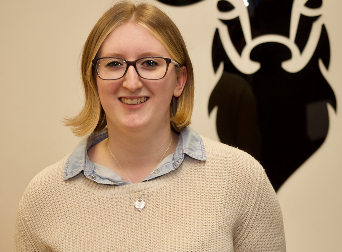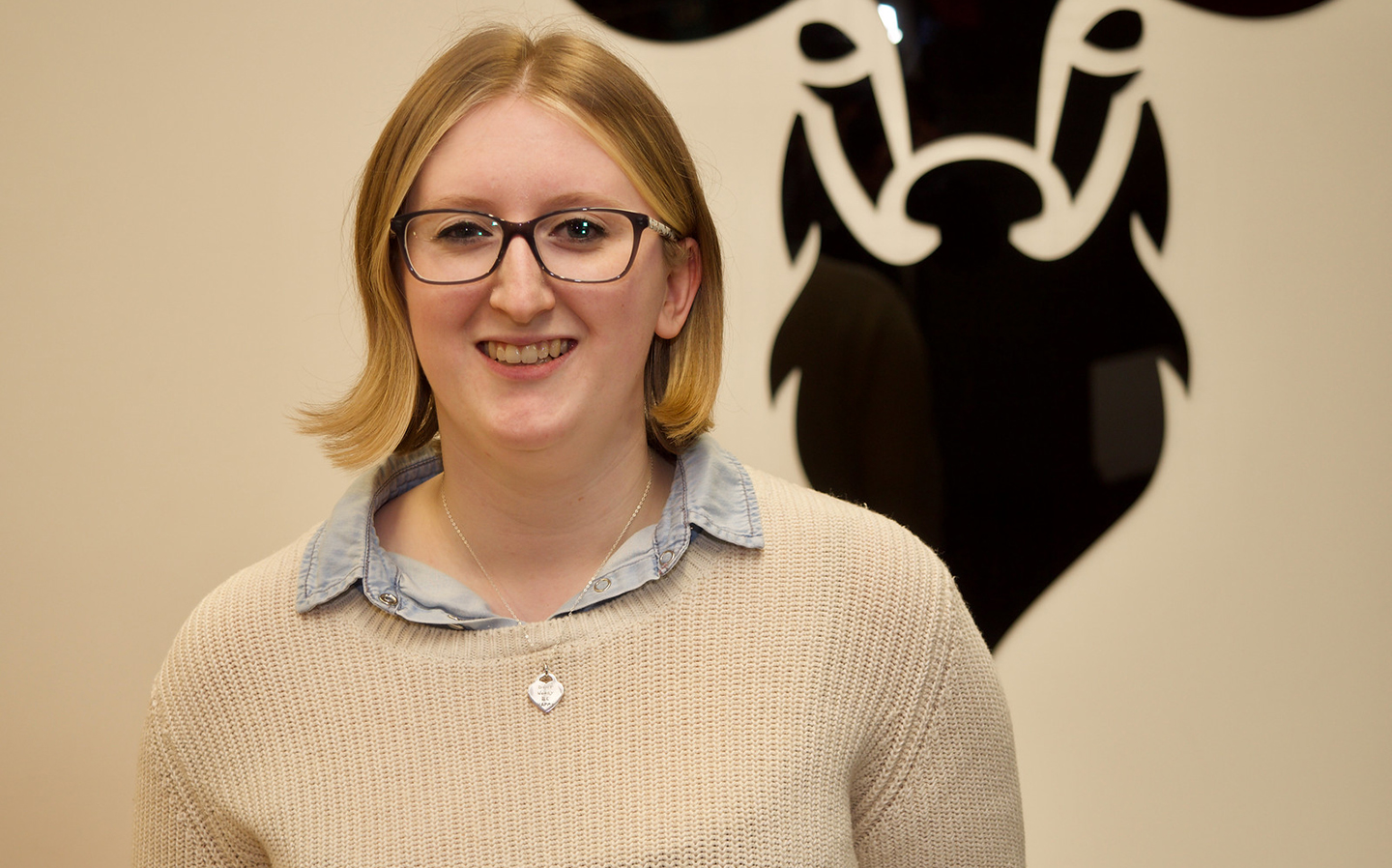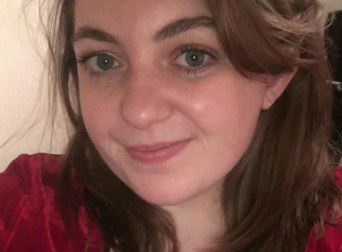BA (Hons) History and English Literature
Key information
-
Typical offer:
Entry requirements -
Fees: See below
Full details -
UCAS code: V1Q3
-
Institute code: H36
-
Study abroad option
-
Work placement option
Find out more
Why choose this course?
- Join our award-winning Oral History Team (featured on BBC R4)
- Focus on your interests - All History modules optional after 1st year
- Specialise in the literature genre and period of your choice
We give you:
- A flexible programme of study, allowing you to concentrate on areas you find especially interesting
- Exceptional academic teams, conducting world-leading research
- Stimulating, innovative courses that allow you to make rewarding connections between two disciplines
- CV-building potential through work placements and extra-curricular activities
- Teaching rated excellent by 92.14% of our English students in the 2018 National Student Survey, with our History students reporting almost 94% overall satisfaction with their course
- History was ranked in the top 25% of UK universities for research impact. (Research Excellence Framework, 2021).
What's the course about?
Our BA History and English Literature gives you the opportunity to study two subjects that speak closely to each other.
Just as poems, plays and novels can offer historians different ways to look at the past, historical documents can also be read as texts to be interpreted as works of narrative.
For both English Literature and History we have modernized and diversified our curriculum to reflect our changing world. Within our research-led courses you’ll study canonical texts and periods of history familiar to a traditional English or History degree but also voices and histories that reflect our modern, globalized 21 st century experiences.
You’ll start this joint degree with a core module that will teach you the skills of close analysis of literary texts. Reflecting on poetry by Danez Smith and Sylvia Plath, Caryl Churchill’s play Cloud 9 as well as work by Shakespeare and Zadie Smith, you’ll discover new ways of thinking about what literature is, and how to read it.
Also in your first year you’ll work through the Historian’s Toolkit, which helps you make the transition from school to university-level study. You will be introduced to an array of primary sources. You’ll also gain insights into historiography, to understand what influences historians, why they write the way they do and how they interact with one another.
Throughout your course, the common link between the two disciplines will be your analysis and interpretation of texts. The skills you’ve learned in your close reading of fiction are in many respects the same as those you will apply to your analysis of historical documents.
One of your second-year core English Literature modules is period-based, focusing on the 18th century, and offers a good example of how English and History are complementary. Your study of 18th century print culture and the emergence of the novel will be enhanced by your understanding of the politics of the day.
Work placement/study abroad option: Between your second and final year, you’ll have the option to study abroad or do a work placement for up to a year. Not only will this give you an amazing experience to talk about but will also give your CV a boost. If you’d rather go straight to your final year, that’s absolutely fine too.
In your final year your courses will cover themes aligned to our academics’ research interests. You’ll have the chance to follow your interests and shape your studies, which could include African American literature, young adult fiction, or literary adaptations. Your History modules may focus on a particular region, such as Europe, or period, such as the 20th century.
Your main campus is College Lane
This is where the creative arts, science and health-related subjects are based. This means you’ll share the campus with future nurses, scientists, artists and more. You can use the common rooms to relax with friends, work out in the 24-hour gym or have a drink in our on-campus pub or cafes. We also have restaurants for you to eat in or grab something on the go. Our Learning Resources Centres are open 24/7, which means you can study whenever suits you best. Want to pop over to the other campus? You can take the free shuttle bus or walk there in just 15 minutes.
What will I study?
Our history students benefit from being part of a diverse and active academic community. Our interactive seminars and workshops help you find your feet in the academic environment, and establish ways of working confidently, creatively and collaboratively. We see our students as fellow researchers, and we place a great deal of importance on sharing and developing skills.
As one of our students, you will have the opportunity to get involved in activities that will complement your studies. Not only do these enhance your experience, they also make for a more impressive CV. Our renowned staff-student Oral History team has taken students to Australia and produced a BBC Radio 4 documentary, which was commended at the 2018 Royal Historical Society Public History Awards.
Check out our student blogs

Student Blogs
Jasmine - Week at a glance
My week at a glance
History lessons are taught between a mixture of lectures and seminars for the first two years (Level four and five). A typical week would consist of one-hour lectures per module followed by a seminar, which could either be immediately after or on a different day. The seminars consist of smaller groups of people where you discuss both the lecture’s information and the assigned reading. These can be debates, presentations, or simple discussions. So, despite only having contact time for four hours per week, there are independent reading and assignments which need to be completed.
I start my week by completing the required reading, making notes of anything I do not understand so that I can ask my lecturer. After completing the weekly reading, I will work on the assignments. Even though they are mostly due at the end of the semester it is a good idea to work on them throughout, so you do not leave them until last minute.
I participated in active students, which is free for all Hertfordshire students. Here I would attend yoga classes, but there is a wide range of fitness and wellbeing events that take place. I also enjoyed badminton, as you could either go alone or with a group of friends. It is also a good idea to join society as it not only boosts your CV, but it is a way to meet likeminded people and develop friendships.
I also had a part-time job which I would do alongside studying. This means that planning is vital as you want to be on top of your workload to ensure you have enough time to complete it to the best of your ability. It worked well with the history course as most of the work was independent, meaning I could work around my other commitments.
It is important that you allow downtime alongside work as it recharges you and you can produce better quality work. It also prevents you from being overworked and ensures that you enjoy the course.

Student Blogs
Jasmine - Things you should know
Things you need to know before studying History at Herts
Preparation is key! Once you know what modules you are taking it is useful to do some research prior so that you can enter the module with basic knowledge. This makes studying it that much easier and you are less likely to be left behind. It prevents your workload from building up and be unbearable. History is a very independent course and will consist of quite a bit of reading, so you need to organise your time efficiently. Leave enough time to work on your assignments from the start so that if you have any issues you can get them sorted in time.
Complete the required reading as that way you will be able to contribute to the seminar discussions. Furthermore, if you stumble across words you are not familiar with or useful words it’s a good idea to make a keyword list and ask your lecturer if you are unsure of a specific concept. When completing the reading highlight important themes and produce short notes. Put them in your own words and as simple as possible, as it makes them easier to understand in the future. It is usually best to find a spot away from distractions and turn your phone off. Moreover, take regular short breaks, to allow what you have read to sink in.
Do not be afraid to talk to the lecturers, they are lovely and always willing to answer questions, especially on assignments. I found that discussing my drafts with lecturers before completing them allowed me to get high grades as they were able to point me in the right direction. They are there for you, so make sure you use them as much as possible.
Most importantly make sure you are having fun and enjoy yourself. Allow downtime so that you can recover and have the right amount of work/life balance.

Student Blogs
Jasmine - Why I love History
What I love most about my course
I loved that with history you could do as much or little as you wanted. Alongside completing the required tasks, lecturers indicated further reading sources if you wanted to. That meant to if there was a part of the subject that interested you, it was possible for you to explore it further. Moreover, most of my lecturers would ask at the start of the semester what we wanted to get from the course. This meant if there were specific areas that we were most fascinated with or wanted to learn, they aimed to include that into the module.
I also loved that there is a range of topics that are covered, and the ability to choose which ones you wanted. I minored in public history which meant that instead of the typical essay assignments I created a documentary for one module. Another module was work experience, so I got to volunteer. We also went on trips to the archives and Bayfordbury campus which offered alternative styles of learning and experiencing history outside the classroom. This was exciting as I got to try new things, which I would not have thought to do.
The humanities department was extremely inclusive. They have an Instagram and post regular events like rollerblading and film nights which allowed you to socialise with your lecturers and peers. The staff were all friendly and welcoming and always happy to help with any issues. I felt that they truly wanted me to succeed, and they had my back. The events helped to create a work/live balance.
Due to the independent nature of studying history, I was able to adapt to studying around my lifestyle. Because the contact time was only eight hours per week, I was able to work alongside studying. I was also able to study on the train journey or at home when I returned to visit family, meaning that I was not left behind on my workload.

Alumni Stories
Eleanor Pilcher
Meet Eleanor Pilcher who since graduating in 2016 has taken the publishing industry by storm. Eleanor currently works as a Marketing Manager at Avon, HarperCollins Publisher.
Read more stories Find out more about this course| Current job role | Marketing Manager |
|---|---|
| Year of graduation | 2016 |
| Course of study | BA (Hons) History and Creative Writing |

University experience and employability
Eleanor is a keen writer with great creative ambitions. During her degree she undertook a six-month internship at a literary agency in her final academic year. In 2016, shortly after her studies, Eleanor landed a placement at Penguin before getting a job in publishing recruitment. After developing her skills within the industry and amassing and impressive amount of knowledge and experience, Eleanor began her current role at HarperCollins Publishers.
Eleanor's degree encompassed a broad spectrum of critical, analytical and evaluative skills and helped shape her as a writer. Throughout her studies she had been writing a novel, which she submitted to literary agencies after being encouraged by her tutor to do so. It was Eleanor's passion for writing that uncovered her interest in working for a literary agency. Due to the fantastic lecturers on her course and the invaluable industry networks available to students, Eleanor managed to secure impressive opportunities in her chosen industry that have informed her career.
Sher recognises the impact the University has had on getting her to where she is today. 'For me the advice and feedback I received on both my History essays and Creative Writing finals was incredibly useful to my academic and professional development. I learnt to take criticism and to harness it and also write more because of it.'
Ambitions for the future
Eleanor has established herself in her chosen industry yet still has ambition to continue pursuing new goals. On her hopes for the future, she says: 'I hope to run a marketing department within a publishing company, possibly the one I'm at now. I hope to publish a novel and continue my freelance writing and public speaking on the side.'

Alumni Stories
April Wilson
Meet April Wilson, who used the diversity of her course to gain new experiences and learn. She is currently an Alumni Relations Coordinator at the University of Sussex.
Read more stories BA (Hons) English Literature with Film| Current job role | Alumni Relations Coordinator |
|---|---|
| Year of graduation | 2017 |
| Course of study | BA(Hons) English Literature with Film |
| MA Journalism with Media Communications |
University life and experience
April initially decided to go to the University of Hertfordshire due to our close proximity to London. She liked that it was easy to commute into the city for shopping and concerts, but that Hatfield wasn’t as expensive to live in!
While studying, April gained valuable experience which helped her develop essential skills for her current role which meant she was able to start ‘armed with the knowledge’ she needed.
However, the most useful thing she learnt from her postgraduate course was having confidence in herself and her ideas, especially when presenting. She credits this to ‘the support of my peers and lecturers who made me feel more confident in my abilities.'
She adds that her undergraduate degree helped her develop the writing and research skills which she applies daily to her current role and her approach to work.
Not only did April gain experience from her studies, but the extra-curricular activities she took part in also helped develop her skills. She says, ‘The writing and video editing experience I was able to gain from my time volunteering for societies at the University was also essential in helping me to have the skills that are valuable within my role.’
Future aspirations
April is also willing to try new experiences to help her gain valuable work experience in a variety of roles. She has previously, done everything from fundraising for charity to running my own online magazine.
In the future, April hopes to continues her studies and complete a PhD in Film Studies. She is particularly interested in looking at representation in films and how this is interpreted through social media.

